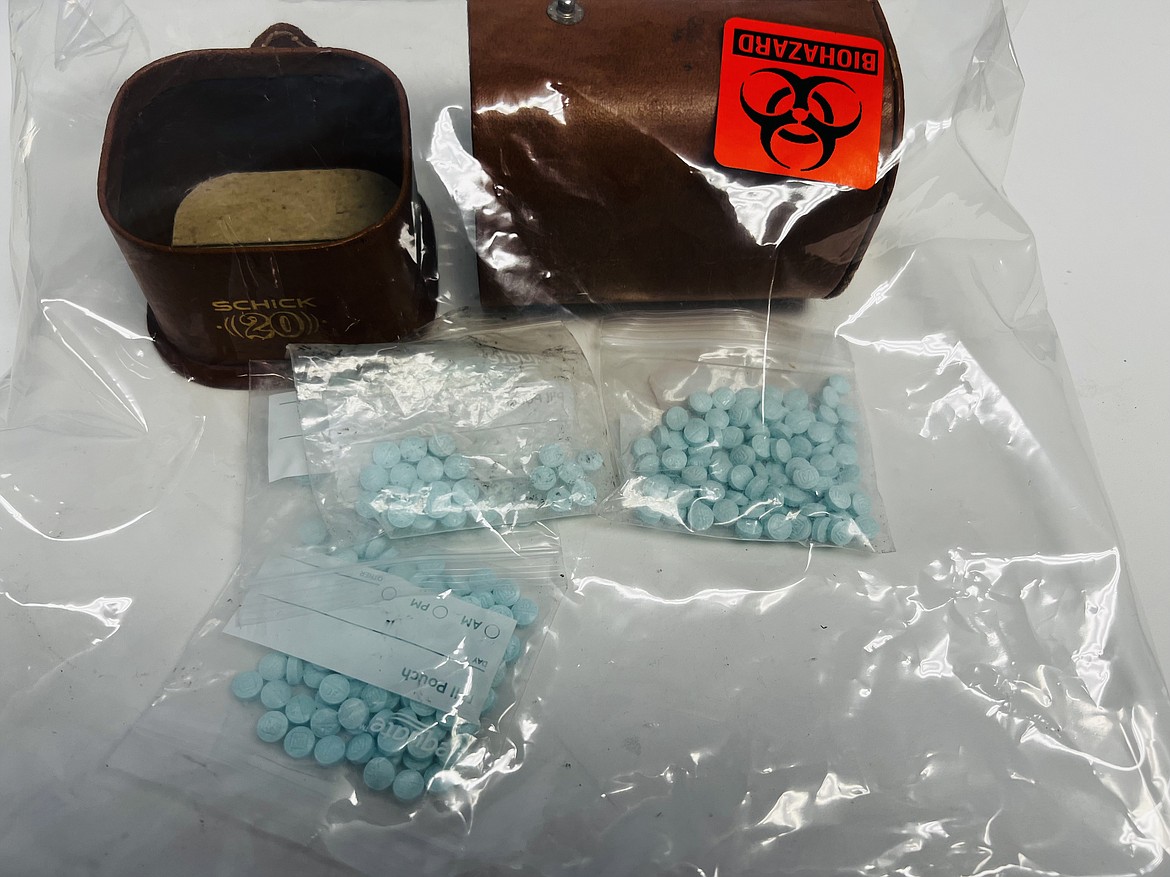Fentanyl trafficking sentence bill heads to House
A bill that would impose mandatory minimum sentences for people convicted of trafficking fentanyl is heading to the floor of the Idaho House of Representatives for a vote, where it already has the support to pass.
The Idaho Legislature’s House Judiciary, Rules and Administration Committee voted Tuesday to send House Bill 406 to the House floor without any recommendation. That is a departure from the more commonly used motion to send a bill to the floor with a recommendation it passes.
Committee members wrestled over what to do with the bill for more than an hour and a half, ultimately voting to move it forward after Rep. David Cannon, R-Blackfoot, told legislators he is deeply concerned that the bill’s language could lead to locking up drug users, not just drug traffickers, under lengthy mandatory minimum prison sentences.
If passed into law, the bill would create mandatory minimum sentences if the amount of fentanyl-related substance, “or any mixture or substance containing a detectable amount of any such substance.”
- Three years in prison and a minimum of a $10,000 fine for 4 to 13 grams, or for 100-249 pills
- Five years in prison and a minimum of a $15,000 fine for 14 to 27 grams, or for 250-499 pills
- 10 years in prison and a minimum of a $25,000 fine for more than 28 grams, or for 500 or more pills
Idaho representative hoped to amend fentanyl bill
Cannon made an unsuccessful motion to send the bill out for amendments after expressing concern about the language of the bill referring to a mixture or substance containing a detectable amount. Cannon had also tried unsuccessfully to strike that language from the bill when it was introduced last week.
“Because of the language of this bill, which applies to any mixture containing any detectable amount of fentanyl and because of the weight associated with fentanyl in this bill, four grams of marijuana which are laced with fentanyl would pull a possessor into the mandatory minimums that are set forth by this fentanyl trafficking bill,” Cannon said during Tuesday’s committee meeting at the Idaho State Capitol in Boise.
Cannon told legislators that someone caught with one ounce of marijuana that is laced with fentanyl would receive a mandatory minimum prison sentence of 10 years.
“These are users,” Cannon added. “So, if nothing else, let’s change the language of the title of the bill, and quit referring to it as fentanyl trafficking because we are capturing in the net users and we shouldn’t be misleading about that fact.”
But Sen. Todd Lakey, R-Nampa, said the mixture language is important because dealers cut and mix fentanyl with other substances to sell more of it. Lakey told legislators Tuesday that there are minimum sentences in place in Idaho law for marijuana, methamphetamines, heroin and cocaine. Adding a mandatory sentence for fentanyl would reduce some of the flow of fentanyl into Idaho and reduce deaths, Lakey said
“We have a gap in our fence, representatives, and that is the fence that helps protect us against cocaine, meth and heroin,” Lakey said.
Fentanyl bill already has support to pass the Idaho House
Documents attached to the bill indicate that sponsoring Rep. Edward “Ted” Hill, R-Eagle, has 36 co-sponsors lined up in the Idaho House. There are 70 members of the Idaho House, and it takes a simple majority of votes to pass a bill on the floor. That means if Hill and all of his co-sponsors are present to vote for the bill — or at least make arrangements to vote while they are absent by “pairing” their vote with an opponent of the bill —then they already have enough votes to pass the bill even if everybody else votes against it.
If the Idaho House votes to pass the bill, it would be sent to the Idaho Senate for consideration, where 11 of the Idaho Senate’s 35 members are listed as a sponsor or co-sponsor of the bill. If the Idaho House and Idaho Senate both pass the bill, it would be sent to Gov. Brad Little for final consideration, with Little having the power to sign the bill into law, allow it to become law without his signature or veto it.
During Tuesday’s committee meeting, at least two legislators alluded to the fact they are being heavily lobbied on the bill or threatened with negative campaigns if they oppose it.
“Members of this committee have been subjected to hints that some out there might run negative ad campaigns against us, as early as October, before we even had bills in front of us, before we had the opportunity to participate in this process and ask these questions, and the pressure that has been brought in regard to this bill has been incredibly intense,” Rep. Julianne Young said during the meeting.
Idaho Capital Sun is part of States Newsroom, a network of news bureaus supported by grants and a coalition of donors as a 501(c)(3) public charity. Idaho Capital Sun maintains editorial independence.

